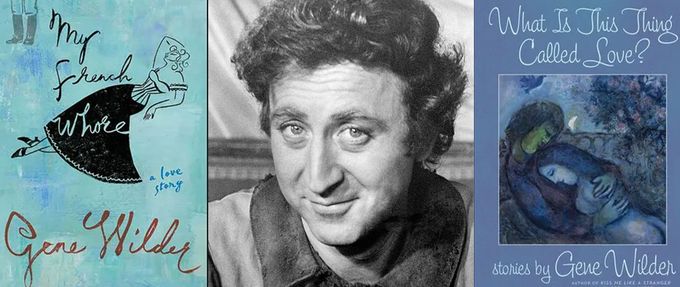Gene Wilder was more than a comic genius—he was a romantic, a seeker, and a man forever fascinated by the nature of human connection. Born Jerome Silberman in Milwaukee in 1933, he began acting at thirteen to cheer up his ailing mother, unknowingly setting the stage for a career that would blend humor with heartache. After studying drama at the University of Iowa and then at the Bristol Old Vic Theatre School in England, he built his craft in New York, where he balanced off-Broadway roles with acting classes and odd jobs.
Wilder rose to fame in the late 1960s through his iconic collaborations with Mel Brooks and Richard Pryor, becoming a beloved presence in films like The Producers, Blazing Saddles, and Young Frankenstein. Yet behind the wide-eyed expressiveness and comedic timing was a man deeply introspective and quietly philosophical. He wrote not only to entertain, but to explore the emotional truths he couldn’t always express onscreen.
In his fiction and memoirs, Wilder turned his attention to love, loss, identity, and the bittersweet beauty of being human. His writing is disarmingly gentle, laced with humor, humility, and an enduring belief in the transformative power of love. Whether chronicling his grief after the death of his third wife, Gilda Radner, or crafting romances set against the backdrop of war, Wilder’s voice remains unmistakable.
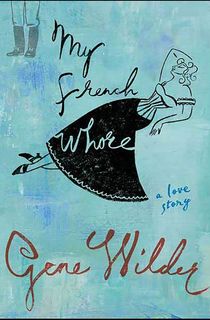
My French Whore
My French Whore is a short, charming novel with a romantic heart, a comedic spirit, and a touch of melancholy—much like Gene Wilder himself. Set during World War I, the story follows Private Paul Peachy, a shy and unremarkable man from Milwaukee who finds himself in the middle of a war, pretending to be someone he’s not.
Paul is a humble railroad man and actor who enlists in the army more out of necessity than patriotism. His marriage is lifeless, and his life back home lacks color. Once he’s deployed to France, he quickly realizes he is unprepared for the violence and chaos of war. In a twist of fate, Paul is captured by the Germans. Rather than meet certain death as a low-level American private, he impulsively claims to be a famous German spy who’s gone missing.
It’s an audacious, dangerous play—and shockingly, the Germans believe him. In his new, false life, Paul gains access to a world he could never have imagined.
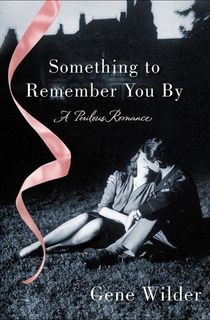
Something to Remember You By
Corporal Tom Cole is a young American medic, sent to London to recover after being injured during the Battle of the Bulge in December 1944.
While convalescing in wartime London, Cole frequents the Shepherdess Café, where he meets Anna. Anna is a shy young Danish woman who claims to work as a monitor at the War Office, scanning radio waves for incoming German planes. Their connection deepens, and Cole falls in love for the first time.
But when he visits her job to surprise her, he finds that Anna has vanished without a trace.
Determined to reconnect her, Cole embarks on a quest behind enemy lines to uncover the truth about Anna's disappearance, and to save her—if possible.

The Woman Who Wouldn't
“The mystery of why I was sent to Germany from Cleveland, Ohio, finally made sense.”
Jeremy Spencer Webb is a successful English concert violinist who finds himself unexpectedly enchanted by a woman who not only resists his charms but lives by an unshakable moral code.
Jeremy, suffering from exhaustion and in need of a break from his demanding career, visits a health spa in Germany. While there, he meets Clara, a reserved, intelligent woman who works as a nurse at the spa. Where Jeremy is used to have his pick of women, Clara is clearly not taken in by Jeremy’s fame or good looks. Unfortunately for her, her disinterest does nothing to squash his fascination. In fact, Jeremy finds himself both intrigued and frustrated by her coolness.
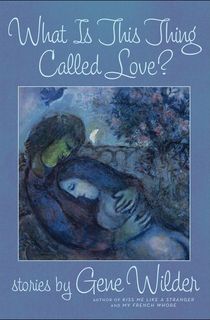
What Is This Thing Called Love?
This short collection of twelve stories further reveals Gene Wilder’s abiding fascination with the mysteries of the heart. Some stories lean toward the surreal or whimsical, others toward the intimate and contemplative, but all revolve around the question in the title: what is love, really?
One story centers on a man who is in love with a woman he’s only seen from a distance. His affection is based almost entirely on his imagination, and yet it feels real to him. Another tale explores a couple trying to reconnect after years apart, dealing with the ghosts of who they used to be.
Wilder also draws inspiration from his personal experiences, and the experiences of his family and friends, to paint poignant tales of love and loss.
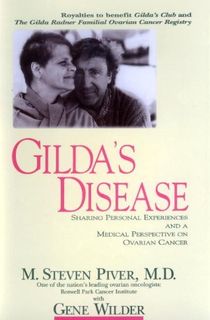
Gilda's Disease: Sharing Personal Experiences and a Medical Perspective on Ovarian Cancer
Part memoir, part medical guide, Gilda’s Disease is a deeply personal and informative collaboration between Wilder and Dr. Steven Piver, a renowned gynecologic oncologist. Together, they offer both a human and a clinical look at ovarian cancer, focusing on the life and death of Wilder’s late wife, Gilda Radner.
Radner, a trailblazing comedian and original cast member of Saturday Night Live, died of ovarian cancer in 1989 at the age of 42. Her illness shocked her fans and devastated those who knew her personally. For Wilder, it was a loss that reshaped his life. His writing is intimate and raw, offering an honest account of what it’s like to care for someone through a terminal illness.

Kiss Me Like A Stranger: My Search for Love and Art
Gene Wilder’s memoir isn’t a traditional recounting of a celebrity’s life or career. It’s an introspective and emotional portrait of a man trying to understand himself—his relationships, his insecurities, his creativity, and the forces that shaped the person he became. It’s more about his inner world than his resume, though it does include memorable behind-the-scenes stories from his time as an actor.
He opens with his childhood in Milwaukee, where his love for acting began as a way to cheer up his mother, who suffered from rheumatic fever. Her illness created a deep sense of responsibility and emotional intensity in him from a young age. That early connection between performance and care becomes a thread throughout the memoir. Acting wasn’t just a job for Wilder. It was a means of connection and healing.
As the title suggests (and as many of his other works reflect), much of the memoir focuses on love—what it meant to him, when he struggled with it, and what he ultimately learned from it. Wilder was married four times, and he reflects candidly on his relationships, including his flaws and missteps. His tone is rarely defensive; instead, it’s questioning, and searching.
